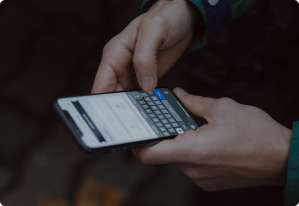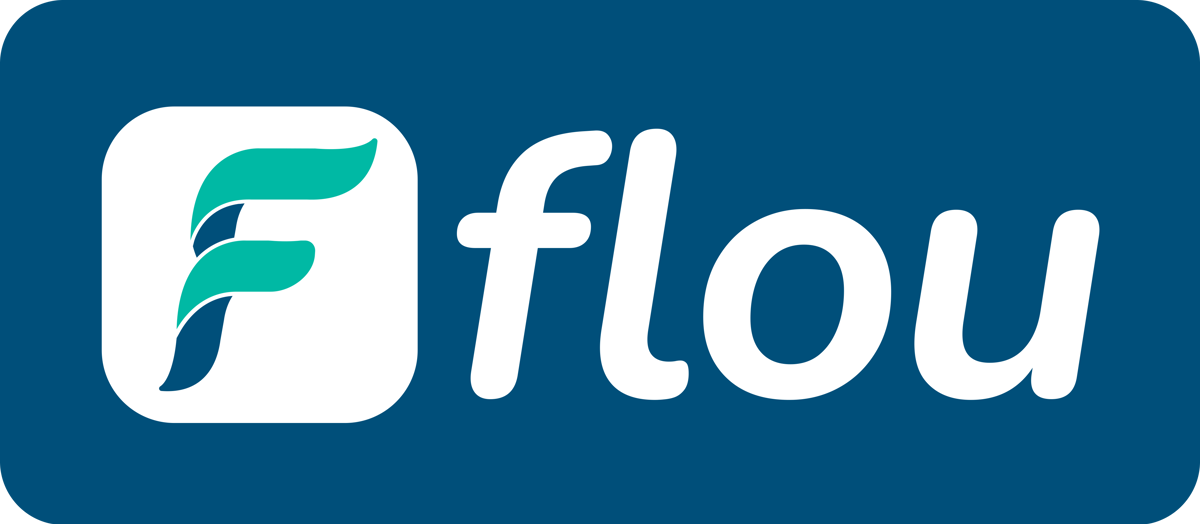4 Blockchain Use Cases in Various Industries
What’s Blockchain? Blockchain is a data basis that implements a decentralization system to save and retrieve data. Using independent nodes to store and retrieve data
Feb 24, 2023
What’s Blockchain?
Blockchain is a data basis that implements a decentralization system to save and retrieve data. Using independent nodes to store and retrieve data, blockchain is a cutting-edge data-based technology that enables users to share information transparently in a corporate network. This database is stored on blocks linked together in a chain. The data stored on the chain is chronologically consistent in that it cannot be changed or deleted without the network's consensus as a validation. So blockchain technology can create an immutable ledger that can track orders, payments, accounts, and other transactions. Each block contain several components that consist of:
- Hash: a unique identifier that works like a fingerprint, in order to enhance the security and to prevent data tampering.
- Previous block hash: collection blocks of hash that contain a transaction which is connected with a previous hash and sorted in order..
- Information: The information inside a block could be a transaction, asset, etc.
Why is Blockchain important?
Blockchain offers a solution to avoid potential legal problems, with a trusted third party to monitor and validate transactions. Blockchain technology creates a decentralized and tamper-resistant system to record every transaction. In the blockchain, these transactions are stored in a ledger grouped by each seller and buyer.
Traditional systems-based database technology faces a number of difficulties when it comes to documenting financial transactions. For instance, both the buyer and the seller of a piece of property can record individual transactions, but neither can be completely trusted. Despite having received the money, sellers are allowed to claim that they did not. Buyers, on the other hand, may both contend that they have paid payments even though none have been made. As a reliable third party in certain situations, blockchain can minimize potential issues.
5 Blockchain Elements
- Distribution: The participants of the blockchain system are connected to a distributed network, operating nodes (computers) that run programs according to the business scheme of the blockchain. The node will then store a copy of the entire ledger that is independently updated as soon as new transactions take place.
- Encryption: The technology applied to the blockchain uses public and private keys to record data securely and semi-anonymously. The blockchain generates addresses for participants visible to all participants involved in the system under pseudonyms.
- Immutability: Transactions can be completed and cryptographically signed, timestamped, and added sequentially in the ledger. So that the record cannot be changed except with the consent of the server to make changes to the data.
- Tokenization: Exchange rates on the blockchain in the form of tokens so that they can represent various assets, including monetary assets, data units, or user identities. Tokenization is a blockchain way of expressing and enabling trading through digital business assets.
- Decentralization: The three main components of decentralization are technology, economy, and decision-making. Transparency is encouraged by the decentralized blockchain network to increase participant trust. This network is also employed to stop members from abusing one another's positions of authority.
Blockchain Implementation in Several Industries
Blockchain is a new technology that can be applied innovatively in various industries. Here are some industries that use blockchain as a technology in it:
- Energy: Energy companies that apply blockchain technology to build peer-to-peer trading platforms and simplify access to renewable energy. In practice, energy companies create platforms for buying and selling electricity between individuals. So most of the process will be automated, where a smart meter will make and record those transactions on the blockchain ledger.
- Finance: Blockchain technology has been used in the financial sector, for instance by Singapore Exchange Ltd, an investment holding firm that offers financial trading services across Asia. The business is leveraging blockchain technology to create interbank payment accounts more effectively. Singapore Exchange Ltd also overcame challenges such as batch processing and manually reconciling thousands of financial transactions.
- Media and entertainment: The management of copyrights is accomplished through the use of the blockchain technology in the media and entertainment sector. For artists to receive just recompense, copyright verification is crucial. Blockchain technology is used by Sony Music Entertainment Japan to streamline the digital rights management procedure. By implementing blockchain technology, productivity has grown and copyright processing expenses have decreased.
- Retail: Blockchain technology is used in the retail sector to track the flow of goods between suppliers and customers. For instance, online retailer Amazon has applied for a patent for a ledger technology system that employs blockchain technology to confirm the authenticity of the goods being sold on the platform.
The difference between Blockchain and Cloud
Unlike the cloud, computing services can be accessed online if the user is connected. Computing services can be accessed through software as a service SaaS (Software as a Service), Products as a service PaaS (Platform as a Service), and Infrastructure as a service IaaS (Infrastructure as a Service) from the cloud. These services have been provided by cloud providers who manage the hardware and infrastructure and provide access to computing services via the internet. In contrast to blockchain services, when using blockchain services, users need to provide hardware to store copies of the ledger. But in this case, a cloud server can be used to save on hardware procurement costs.
How Can Blockchain Be Integrated with the Cloud?
Several cloud service providers provide blockchain or BaaS (Blockchain as a Service), complete with the cloud as a server. Here's how the cloud can be integrated with the blockchain to optimize its use:
- Interoperability: Enterprises need to develop a single toolset to integrate multiple applications across existing programs and cloud providers.
- Data Encryption: SSL encryption provides security to data, but data security can be compromised when decrypted and stored without prior encryption.
- Service Level Agreement: Cloud users should evaluate Service Level Agreements before signing a contract with a provider to ensure minimal offers and data protection.
- Cloud Data Management: Cloud data management is an important research issue, as service providers rely on the infrastructure provider for complete data security. Auditability, confidentiality, and remote attestation techniques can be achieved, but not all situations.
Benefit of BaaS (Blockchain as a Service)
- Decentralization: Centralization mitigates problems that arise from implementing data centralization; namely, when there is an error in the central data, the entire system can go down.
- Persistency and Immutability: The data that enters the blockchain will be validated first so that it cannot be manipulated. Therefore the credibility of the data is very high.
- Auditability: All data blocks in the blockchain are encrypted with a hash that can be traced to mitigate misinformation.
- Traceability: All transactions can be audited because it records all activities with a timestamp.
- Anonymity: The data stored by the blockchain is decentralized so that users can interact anonymously.
Source: AWS Blockchain dan Gartner
Author

Faya
Konten
Other News
Flou Presents Code as a Service at Webinar Bross CFUE Eps 6

Super Admin
Aug 04, 2022
Collaborating with the Ministry of Industry, Flou Helps StartUp Business Acceleration

Super Admin
Aug 11, 2022
Flou Internal Socialization

Super Admin
Jun 10, 2022
Flou as StartUp Innovation Booster

Super Admin
Jun 10, 2022

Interested with Flou?
Don't miss our Free Trial of Elastic Compute Service
Get in Touch
If you have any questions or queries, our Flou experts will help you to find the best solution. Feel free to contact us.
Our Offices
Graha Telkomsigma BSD City
Jl. Boulevard BSD Tim, Lengkong Gudang, Serpong Sub-District, South Tangerang City
Banten 15321
Phone: 62.21. 538 8538
Fax: 62.21. 538 8505
